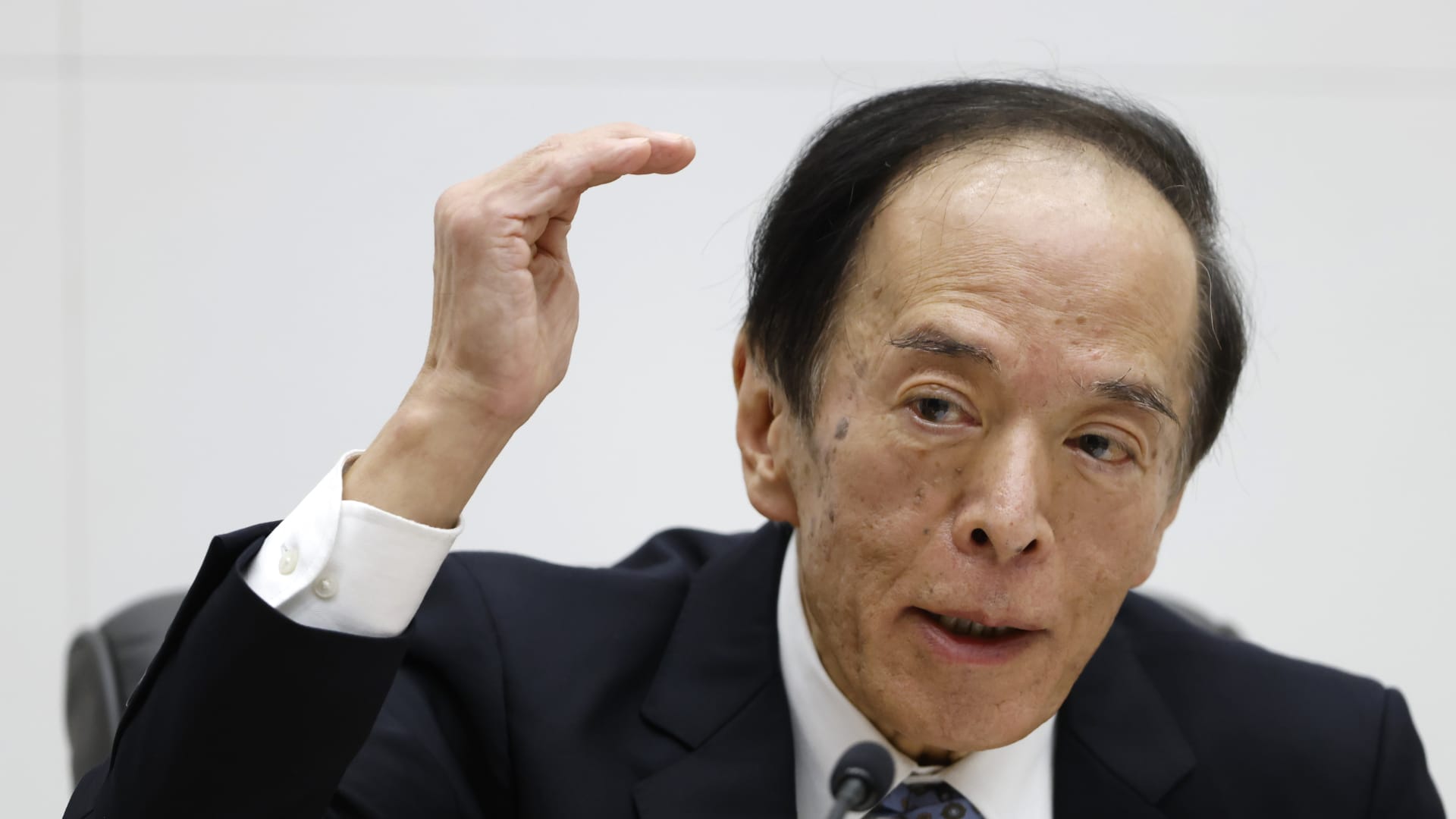Kazuo Ueda, governor of the Bank of Japan (BOJ), gestures as he speaks during a news conference at the central bank’s headquarters in Tokyo, Japan, on Tuesday, Oct. 31, 2023.
Kiyoshi Ota | Bloomberg | Getty Images
Japan’s central bank expectedly left its ultra-loose monetary policy unchanged at its final policy meeting this year in light of “extremely high uncertainties” in the world’s third-largest economy, pushing any likely unwinding to the new year.
The Bank of Japan decided unanimously that it would keep interest rates at -0.1%, while also sticking to its yield curve control policy that keeps the upper limit for 10-year Japanese government bond yield at 1% as a reference.
“With extremely high uncertainties surrounding economies and financial markets at home and abroad, the Bank will patiently continue with monetary easing, while nimbly responding to developments in economic activity and prices, as well as financial conditions,” the BOJ said in a policy statement Tuesday.
The Japanese yen weakened after the BOJ decision and was trading at about 143.5 against the greenback in midday trade. Yields on the 10-year Japanese government bonds were largely unchanged.
With Bank of Japan’s possible unwinding of its ultra-loose monetary policy being challenged by a slowing economy and cooling inflation, most economists expect Governor Kazuo Ueda to only make changes next year, once the annual spring wage negotiations confirm a trend of meaningful wage increases.
Ueda is due to meet the press in Tokyo later Tuesday, where he may offer forward guidance on the BOJ’s future path of action.
Comments from Ueda earlier in December had raised expectations of a change in monetary policy, sparking a rally in the yen. The BOJ has been cautious in unwinding its long-held ultra-loose monetary policy, wary that any premature move could jeopardize recent nascent improvements.
Inflation expectations
On Friday, the Japanese central bank also said it expects core inflation — which it defines as inflation that excludes food prices — to stay above 2% through fiscal 2024. Despite core inflation exceeding its stated 2% target for 19 consecutive months, the BOJ has “patiently continued” with its super accommodative monetary policy.
The so-called “core core inflation” — inflation minus food and energy prices — has exceeded BOJ’s 2% target for 13 straight months now.
For the BOJ, the preference is for inflation to be driven by domestic demand, which is more sustainable and stable. The bank believes wage increments would translate into a more meaningful spiral, encouraging consumers to spend.
Japan’s umbrella labor union, Rengo, said in October that it would demand wage hikes of at least 5% at next year’s spring wage negotiations. The union managed to secure the biggest raise in three decades at this year’s talks in March.
The BOJ’s monetary policy is complex and multi-faceted due to the various quantitative easing tools it has used to reflate the world’s third-largest economy in the last three decades.
Its super-easy posture also sets it apart as an outlier at a time when other major central banks have raised rates to combat stubbornly high inflation. This policy divergence has partly accounted for pressures on the Japanese yen and government bonds.
This is a developing story. Please check back for more updates.


